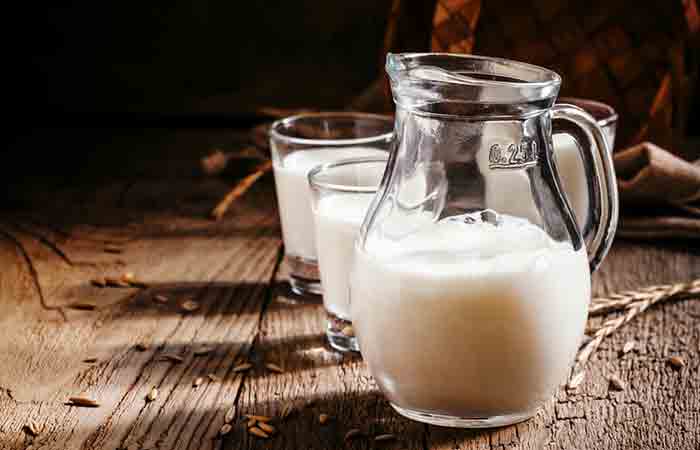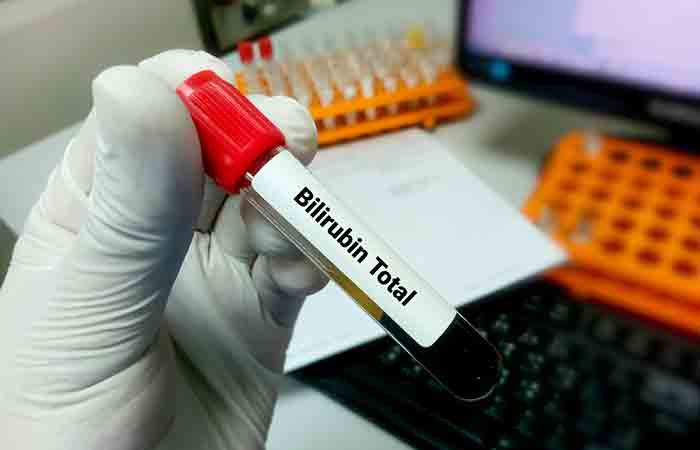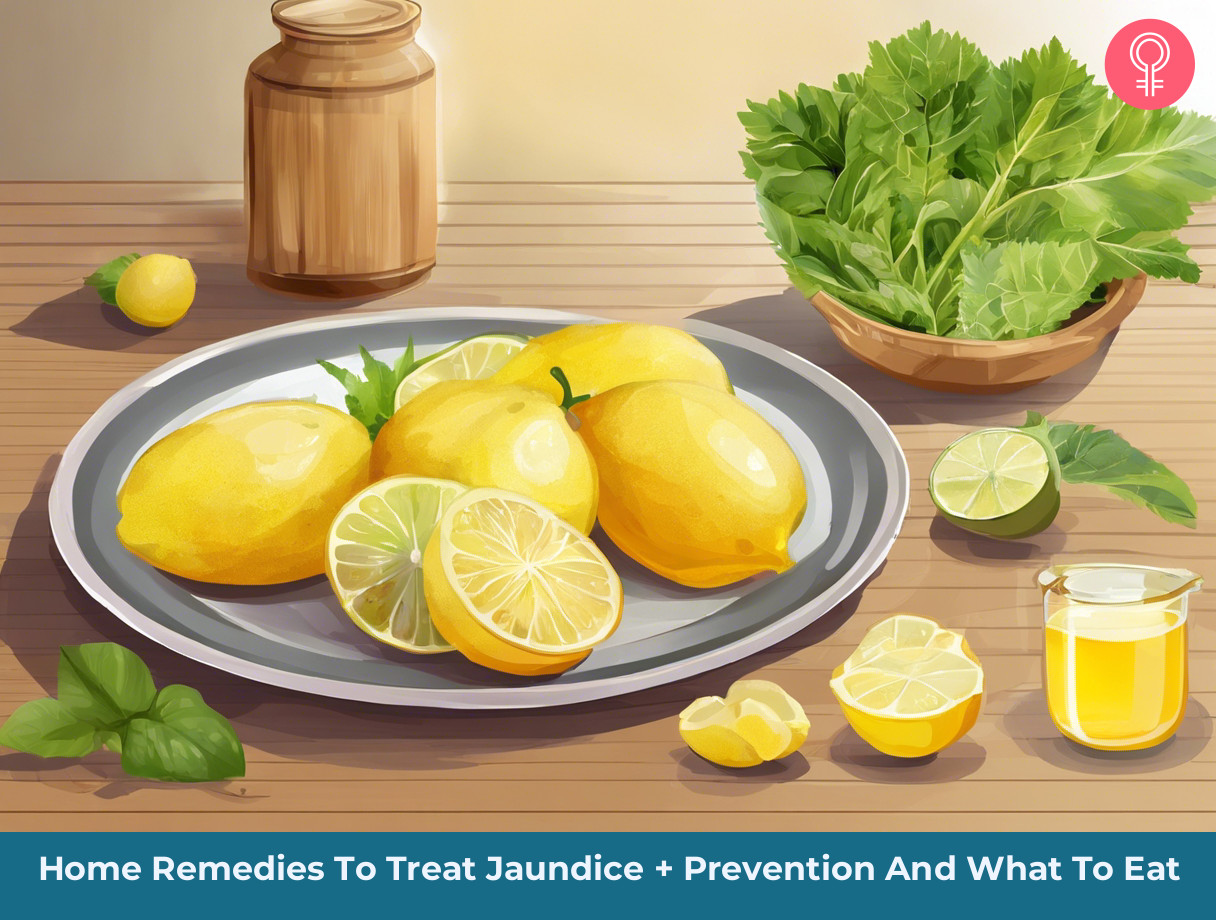Jaundice establishes when there is a boost in the bilirubin degrees in the blood. This can bring about an individual establishing yellow skin and eyes. Jaundice may be a hidden clinical condition symptom and needs clinical treatment to prevent further difficulties. You can likewise choose a few other standard and alternative healing treatments like naturopathy, ayurveda, homeopathy, acupuncture, and so on. This article checks out the various all-natural and organic remedies and treatments for jaundice administration and a few tips to aid you prevent it in the future. Read on.
In This Article
Best Home Remedies For Jaundice
1. Sunlight
Phototherapy is a widely used treatment to treat jaundice in infants. However, data suggests exposure to sunlight is 6.5 times more effective than phototherapy while treating jaundice ( 1 ). It might be thought about a different phototherapy resource for the therapy of neonatal jaundice. Nonetheless, even more clinical research studies are required hereof.
2. Sugarcane Juice
Sugarcane juice has anti-inflammatory, analgesic, antihyperglycemic, diuretic, and hepatoprotective i X A medication that protects against liver damage. NAC, MgIG, PPC, bicyclol, and silymarin are some examples. effects ( 2 ). This may help in strengthening the liver, provide proper hydration, and also help in managing symptoms of jaundice.
You Will Need
1-2 glasses of sugarcane juice
What You Have To Do
Drink one to two glasses of sugarcane juice.
How Often You Should Do This
Consume this daily.
3. Essential Oils
a. Rosemary Essential Oil
Rosemary essential oil exhibits detoxifying and hepatoprotective effects ( 3 ). Thus, it might appropriate for advertising liver health. Nonetheless, since its impacts on jaundice management are not well-studied, more research study is needed to confirm the cases.
You Will Need
- 12 drops of rosemary oil
- 30 mL of any carrier oil (coconut or jojoba oil )
What You Have To Do
- Mix 12 drops of rosemary oil with 30 mL of any carrier oil.
- Apply this mixture topically to your abdomen and liver area and massage gently.
- Leave it on and allow it to be absorbed.
How Often You Should Do This
Do this once a day until you notice any visible improvement.
b. Lemon Essential Oil
Lemon essential oil is known for its protective action against liver injuries ( 4 ). It also exhibits antioxidant properties ( 5 ). These properties of lemon essential oil may help in promoting liver health.
You Will Need
- 12 drops of lemon essential oil
- 30 mL of any carrier oil (coconut or olive oil )
What You Have To Do
- Add 12 drops of lemon essential oil to 30 ml of carrier oil of your choice.
- Mix well and apply it all over your abdomen and right above your liver area.
- Leave it on until it is completely absorbed.
How Often You Should Do This
Do this once a day.
4. Goat Milk

Goat milk is rich in many vital nutrients that are beneficial to both adults and infants ( 6 ). The antibodies in it may aid manage jaundice signs and symptoms somewhat. Nevertheless, there isn't sufficient clinical proof to sustain this claim. For that reason, it's ideal to seek advice from a physician before consuming milk.
You Will Need
1 cup of goat milk
What You Have To Do
Consume a cup of goat milk.
How Often You Should Do This
Consume this daily.
Related: 7 Wonderful Goat Milk Benefits For Health & Side Effects
5. Green Grape Juice
Green grapes exhibit antioxidant properties and contain fiber ( 7 ). This may assist reduce digestion, avoid liver damage during metabolic process, and assist with jaundice monitoring. Nonetheless, more research is called for to establish the web link in between grape juice consumption and liver wellness.
You Will Need
1 cup of green grape juice
What You Have To Do
- Consume a cup of green grape juice .
- You can feed infants with the juice extracted from two to three grapes.
How Often You Should Do This
Do this daily.
6. Garlic
The allicin in garlic exhibits strong antioxidant properties ( 8 ). It might aid in detoxing the liver, speeding up the recuperation from jaundice. Nevertheless, proof relating to the effect of garlic on liver health and wellness is lacking. As a result, even more study is necessitated to verify these claims.
You Will Need
3-4 cloves of minced garlic
What You Have To Do
- Add a few cloves of minced garlic to your daily diet.
- Alternatively, you can also chew on the garlic cloves directly.
How Often You Should Do This
Do this daily.
Related: 32 Benefits Of Garlic For Health, Skin, & Hair + How To Use It
7. Ginger
Ginger possesses powerful antioxidant and hypolipidemic i X A varied selection of drugs that are used to decrease blood levels of lipids and lipoproteins, such as cholesterol. homes A research discovered that it could help in reducing inflammation connected with Non-Alcoholic Fatty Liver Illness ( 9 ). This shows its possibility for stopping liver inflammation and promoting its health and wellness. However, more studies are called for hereof.
You Will Need
- 1-2 inches of minced garlic
- 1 cup of water
What You Have To Do
- Add an inch or two of ginger to a cup of water.
- Bring it to a boil in a saucepan.
- Allow it to steep for 5 minutes and strain.
- Consume it while it is warm.
- You can also add ginger to your daily diet as an alternative.
How Often You Should Do This
Do this daily.
Related: 25 Benefits Of Ginger, How To Take It, Nutrition, & Guidelines
8. Lemon Juice
Animal studies found that the antioxidants in lemon juice may have hepatoprotective effects (4) . While there isn't enough proof regarding its impacts on jaundice administration, the anti-oxidants in lemon may help handle liver health, which could aid take care of jaundice symptoms. Nevertheless, more research study is required in this regard.
You Will Need
- ½ lemon
- 1 glass of water
- Honey
What You Have To Do
- Add the juice from half a lemon to a glass of water.
- Mix well and add some honey to it.
- Drink the lemon juice immediately.
How Often You Should Do This
Drink this 3-4 times a day.
Quick TipLemon juice may cause dental cavity and dentinal hypersensitivity as a result of its acidic nature. This can happen when it is eaten regularly and in excess.
9. Vitamin D
 Image: IStock
Image: IStock
Because newborn infants are hardly subjected to the sunlight, they are often lacking in vitamin D. According to a study published in the Journal of the Chinese Medical Association , jaundiced infants were observed to be deficient in vitamin D as compared to non-jaundiced infants ( 10 ).
Nursed babies need up to 400 IU of vitamin D daily. They can be offered drops of this vitamin, or the nursing mommy can eat much more vitamin D-rich foods like eggs, cheese, and fish. Grownups can likewise benefit from this remedy if they lack vitamin D.
10. Yogurt
Probiotic yogurt may help bring down the serum bilirubin levels by regulating bacterial colonies in the body ( 11 ). Babies may additionally take advantage of probiotic supplementation. Thus, breastfeeding mommies might raise their intake of probiotic yogurt to aid the healing of their infants.
You Will Need
1 bowl of plain probiotic yogurt
What You Have To Do
Consume a bowl of plain probiotic yogurt daily.
How Often You Should Do This
Do this daily.
11. Tomatoes
Tomatoes contain a compound called lycopene ( 12 ). Lycopene is a strong antioxidant and animal studies found that it may help in the detoxification of the liver ( 13 ).
You Will Need
- 2-3 tomatoes
- 1 cup of water
What You Have To Do
- Boil the tomatoes in a saucepan.
- Strain the mixture and remove the tomato skin.
- Mix the boiled tomatoes with the collected water.
- Drink this juice.
How Often You Should Do This
Do this once every day for a couple of weeks.
12. Amla
Amla is rich in vitamin C and many other nutrients ( 14 ). It has been used in Ayurveda for managing jaundice as its potent antioxidants help keep the liver healthy ( 15 ).
You Will Need
- 2-3 amlas (Indian gooseberries)
- 1 cup of water
- Honey
What You Have To Do
- Boil the amlas in a saucepan.
- Mix the amla pulp with the remaining water.
- Once the mixture cools down, add some honey to it and consume it.
How Often You Should Do This
Do this 2-3 times a day.
13. Barley Water
Barley exhibits diuretic and antioxidant properties ( 16 ). These homes may assist in clearing out toxins along with bilirubin through urine. Furthermore, animal studies located that it may assist improve liver function, thereby decreasing the threat of associated conditions, including jaundice ( 17 ).
You Will Need
- 1 teaspoon of roasted barley seed powder
- 1 glass of water
- 1 teaspoon of honey
What You Have To Do
- Add a teaspoon of roasted barley seed powder to a glass of water and mix well.
- Add a teaspoon of honey to this and drink the mixture immediately.
How Often You Should Do This
Do this daily.
14. Holy Basil
Basil ( Ocimum sanctum ) exhibits hepatoprotective activities ( 18 ). This property may be beneficial for the liver and may enhance its function.
You Will Need
A few holy basil leaves
What You Have To Do
- Chew on a few holy basil leaves (10 to 12).
- If the flavor is too strong for you, grind the leaves and add the paste to your favorite juice.
How Often You Should Do This
Do this 3 times a day.
15. Oregano
Oregano contains tocopherol and other powerful antioxidants (19) . These anti-oxidants might help reduce oxidative stress, which is critical for keeping real-time wellness Consequently, it could help in handling liver-related concerns like jaundice. However, even more researches are required to sustain these claims.
You Will Need
- 1-2 teaspoons of oregano
- 1 cup of water
What You Have To Do
- Add one to two teaspoons of oregano leaves to a cup of water.
- Bring it to a boil in a saucepan.
- Simmer for 5 minutes and strain.
- Once the tea cools down a little, drink it immediately.
- You can also add some honey to the tea for added flavor.
How Often You Should Do This
Do this 3 times a day.
16. Papaya
Papaya leaves have been used in fold medicine for ages to treat jaundice ( 20 ). The leaves are rich sources of enzymes, like papain and chymopapain ( 21 ). These enzymes may support digestive health and treat liver problems.
You Will Need
- Papaya leaves
- Honey
What You Have To Do
- Grind the papaya leaves to form a paste.
- Strain this mixture to obtain the juice.
- Mix half a tablespoon of this juice and a tablespoon of honey.
- Drink this mixture.
How Often You Should Do This
Do this 2-3 times a day.
Note: Consult a doctor prior to complying with any of these solutions. Likewise, it is necessary to constantly see a healthcare provider when managing serious medical problems like jaundice. Therefore, do not depend only on natural home remedy and look for clinical treatment to prevent possible complications.
Aside from these solutions, there are a few other pointers you can follow to stop jaundice. They are listed below.
Prevention Tips
- Maintain a healthy weight and exercise daily.
- Avoid drinking alcohol.
- Manage your cholesterol levels.
- Maintain hygiene.
- Drink clean and boiled water and eat fresh food.
Quick TipConsult a doctor and get the hepatitis vaccination (or booster) to avoid jaundice. In addition, it is suggested that you obtain immunized if you intend on areas where this illness is native to the island or if your occupation needs you to work in a high-risk setup, such as a medical facility or a research laboratory.
Given below are some foods that may further aggravate your condition and must be avoided.
Foods To Avoid
 Image: IStock
Image: IStock
Avoid these foods if you have jaundice:
- Sugar
- Meat
- Dairy products
- Salt
These foods are quite difficult to digest and wind up intensifying the condition. For this reason, stay away from them to promote faster healing from jaundice.
Let us now look at the leading causes of jaundice in both adults and newborns.
Causes And Risk Factors For Jaundice
Jaundice occurs due to excess bilirubin in the body in both adults and infants. Bilirubin is a waste item that is generated as a result of the malfunction of your red blood cells. This compound is damaged down and excreted with the stools.
Before birth, infants have a various type of hemoglobin that starts to break down swiftly after they are born. This produces high degrees of bilirubin that need to be eliminated from their body.
An underdeveloped liver can not secrete bilirubin as quick as it is being generated, and therefore, this may lead to hyperbilirubinemia and jaundice in babies.
Other causes and risk factors for jaundice in infants are:
- Breastfeeding jaundice that occurs when the baby is not fed well in the first week of life.
- Breast milk jaundice that occurs when certain compounds in breast milk interfere with the breakdown of bilirubin.
- Medical conditions like sickle cell anemia, liver disease, and sepsis.
- Premature birth
- Bruising during birth
- Blood team incompatibility in between the mommy and the infant. Pris, a blog writer, shared her newborn baby's trip with jaundice. He was diagnosed soon after his birth with a high degree of jaundice that enhanced after taking in breast milk. She creates, "My physician was perturbed as to why the degree raised with breastmilk. They came up with some descriptions varying from breastmilk being harder for infant to digest compared to formula milk to hubby having a various blood group from me, so baby could have a blood team that would certainly have to "deal with" the antibodies from 2 various blood teams, resulting in a higher jaundice degree ( i ).”
The causes and risk factors for jaundice or high bilirubin levels in adults are:
- Medical conditions like malaria, sickle cell anemia, cirrhosis i X A severe kind of liver condition when great liver cells is permanently harmed and replaced by mark tissue., cancer cells, gallstones, and autoimmune problems.
- Certain medications
- Parasites like liver flukes
- Exposure to different types of viral hepatitis
- Hereditary conditions
- Alcohol consumption
The following are some of the signs and symptoms that surface with jaundice in adults and infants.
What Are The Signs And Symptoms Of Jaundice?

- Pale stool
- Dark urine
- Itchy skin
- Vomiting
- Nausea
- Bleeding (in the rectum)
- Diarrhea
- Chills
- Fever
- Loss of appetite
- Weakness
- Weight loss
- Abdominal pains and headaches
- Swelling (legs and abdomen)
The signs of jaundice in infants include:
- Drowsiness
- Poor feeding
- Pale stools
- Dark urine
- Yellow abdomen and limbs
- Weakness
- Inability to put on weight
- Irritability
Jaundice may be divided into three major types, depending on its cause.
Types Of Jaundice
- Pre-Hepatic Jaundice: This sort of jaundice arises from a too much break down of red blood cells, which overwhelms the liver's capability to metabolize bilirubin.
- Hepatocellular Jaundice: When your liver sheds its capacity to metabolize bilirubin, it results in hepatocellular jaundice. This kind is usually a result of liver disorder.
- Post-Hepatic Jaundice: When there is an obstruction in the drainage of bilirubin from your body, it results in post-hepatic jaundice.
Allowed's now take a look at the degrees of bilirubin in grownups and infants that identify the onset of jaundice.
Jaundice Level Chart

One of the most common means of testing the bilirubin degrees is via a blood examination, though an amniotic fluid examination and an urine examination can additionally provide trustworthy outcomes. The examination determines the degrees of both conjugated and unconjugated bilirubin.
The normal bilirubin levels in adults range from 0.2 mg/dL to 1.2 mg/dL . Any levels above this are considered high, and the individual has an increased risk of developing jaundice.
Newborns should not have bilirubin levels above 5 mg/dL. Infants whose bilirubin degrees climb above this degree after a few days of birth are likewise at the risk of creating jaundice.
Pris shared that her kid's jaundice level was 18.5 which fell to 18 after formula feed and photo-therapy. Nonetheless, the degree raised to 19.5 after he ate breastmilk. She discussed, "After eventually of formula feed and phototherapy, the jaundice level fell to 18. However, this degree was still too expensive for him to be discharged, so remain one more day we needed to ( i ).”
As per this report , jaundice is much more frequently seen in infants and the senior. In babies, around 20% might develop jaundice due to an immature liver feature. Among kids, liver disease A is the main cause of jaundice, whereas, in elders, it is either because of bile air duct block or liver damages.
High bilirubin levels are not preferred, and they should be maintained in check to prevent wellness issues that may cause jaundice.
Speak with a physician as quickly as signs occur as jaundice can be a discussion of several serious diseases like liver disease, liver failing, and particular hematological problems.
Jaundice may take an unsightly turn if the treatment is postponed for as well lengthy. Hence, it is best to start therapy while likewise following these solutions. Allow us figure out even more concerning it in the following area.
Medical Treatment For Jaundice
Scientific therapy for jaundice depends on its underlying cause and is various for adults and children. For instance, for jaundice-induced pruritus, cholestyramine is often recommended by medical professionals as the very first line of treatment. They may also recommend rifampicin, naltrexone, and sertraline as the 2nd, third, and 4th line of therapy, respectively ( 22 ). However, you should avoid consuming these drugs on your own.
In case of babies, the medical professional might make use of conventional photo-therapy or exchange transfusion for treatment, depending upon the intensity of neonatal jaundice ( 23 ).
Infographic: 5 Home Remedies To Treat Jaundice
Jaundice can be hazardous to one's wellness, and recuperation can take weeks. Counting entirely on medicine during your ailment might not be the most effective option. Since jaundice impacts your liver and metabolic rate, you require nutrition remainder to help your body recover gradually. Particular solutions, in addition to drugs, can aid in your therapy. We have noted the very same in the infographic below. Scroll to check.
Illustration: StyleCraze Design Team
Get the high-quality PDF version of this infographic.


Share
Jaundice is a clinical problem in which there is an excess of bilirubin, a waste product, in the blood. Both grownups and babies can obtain jaundice, albeit for various reasons. Nonetheless, in either case, jaundice, if left unattended, can cause serious issues as it normally is an indicator of underlying health problems. Some typical indicators of jaundice consist of yellowing of skin and eyes, light stool, dark pee, weakness, and failure to gain weight or fat burning. While medical treatment is essential for this condition, you may adhere to some home remedies to manage jaundice, such as direct exposure to sunlight, healthy foods like papaya, tomatoes, sugarcane juice, barley water, and the application of specific essential oils.
Frequently Asked Questions
How long does jaundice last in babies?
Jaundice in babies, especially breast milk jaundice, may last anywhere from 3 to 12 weeks.
Why are babies born with jaundice?
Babies create jaundice when the bilirubin degrees in their bodies are greater than the kidneys can flush out. High bilirubin might be a result of the fast failure of red cell.
What are the best foods for jaundice patients?
A diet that includes fresh fruits, vegetables, fish, whole grains, and nuts may be great for those with jaundice.
How long should your baby be exposed to the sun to treat jaundice?
For treating jaundice in your infant, you might expose him/her to sunlight through a shut glass window for about 15 minutes, 4 times daily.
Is banana good for jaundice?
No, bananas are not recommended for individuals with jaundice. Bananas, especially when eaten with milk, might boost bilirubin levels in the body, which is detrimental throughout jaundice ( 24 ).
Can vitamin B12 deficiency cause jaundice?
Yes, long-term jaundice may be a result of a vitamin B12 deficiency. However, it is rare ( 25 ).
Is jaundice an emergency?
Yes, jaundice is an emergency and should be treated by a professional healthcare provider right away.
What turns yellow first with jaundice?
Generally, the white of the eyes is the first part to turn yellow with jaundice.
Key Takeaways
- Jaundice is triggered as a result of boost in levels of bilirubin and entails yellowing of skin, weakness, and anorexia nervosa
- A few of the most efficient natural home remedy to deal with jaundice include raising fluid uptake, sunbathing, and rubbing the abdomen with essential oils, as they have hepatoprotective effects.
- Consuming papaya leaves, grapes, tomatoes, amla, and lemon juice helps treat jaundice as they have antioxidant properties.



